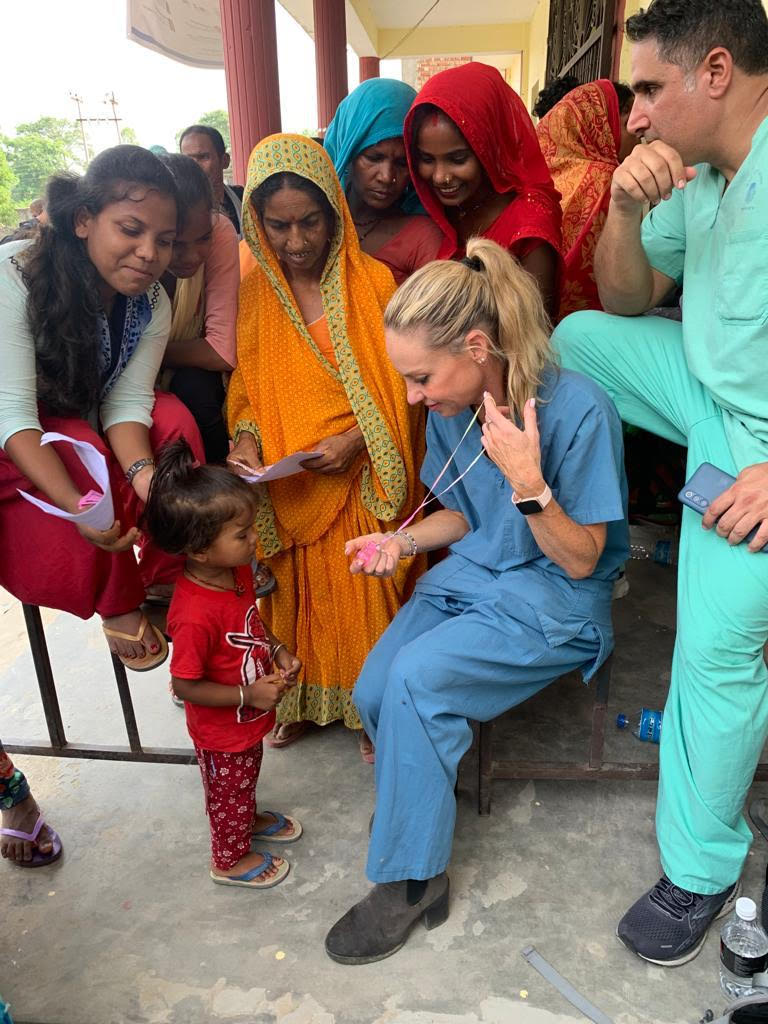Dr. Ronit Almog, 51, is the mother of Ido 21, Roy 17, and Noa 10. She is a senior gynecologist at Ichilov Hospital, owner of clinics in Tel Aviv and Holon, and expert in gynecology, midwifery, and fertility treatments.
For over five years, Almog has headed the Bringing Life to the World organization on behalf of Ichilov Hospital. Through the organization, delegations of doctors from all fields are sent to developing countries where the mortality and morbidity rates are among the highest in the world. The destinations are selected in cooperation with the Israeli Ministry of Foreign Affairs.
How did it all begin?
I always knew I wanted to volunteer in developing countries. Something about the simplicity and human warmth in these places attracted me. About jive years ago, I met a female doctor who was part of a humanitarian expedition to Burma, and our conversation led me to the realization of my dream. I knew that in the basement of Ichilov there was medical equipment that was not in use. More importantly, I knew what advanced knowledge was available at our hospital and that Israel is a world leader in the medical field. I contacted the hospital management, which expressed support for the establishment of the Bringing Life to the World organization, whose goal is to reduce maternal and fetal mortality and morbidity in developing countries.
The activity first started for mothers and women, but we soon realized that the mother also comes with her partner and other family members, so the activity was expanded to provide a solution for the whole family and a variety of medical problems.
The delegations include a multi-system team that includes ophthalmologists, intensive care/internal medicine, breast examinations, gynecology, pediatrics, and more. The composition of the team of doctors varies according to the specific needs of the destination. It is important to note that all doctors come fully voluntarily; they leave their jobs at the hospital and clinics where they work. The doctors are ambassadors of goodwill on behalf of the State of Israel and change the lives of people who cannot obtain a medical solution. Some of them have never even seen a doctor before.

How does it work in the field?
In most places, the team set up an impromptu health camp, usually in schools. Women from the villages of the area come with children and other family members. Our medics work with the local doctors so that while examining the patients, we also enrich the doctors with knowledge. And we leave them the equipment we brought with us from Israel so that they can continue to treat patients after our delegation leaves.
What countries have you been to?
India, Burma, Guatemala, Nepal, and Brazil, where we received support from the Israeli Embassy. We sailed with a medical boat to the foot of the Amazon and built health centers there.
What are the plans for the coming year?
This month we are going to Guatemala. This is the first time that our delegation will be part of a joint activity with the Warriors Without Borders organization. In the expedition, 30 soldiers, members of Matan's unit, will join the doctors' activities. In addition, the parents of Matan Gottlieb, a Magellan fighter who was killed in Operation Protective Edge, will join the activities. During the medical activity, the soldiers will renovate schools, teach the children, and play with them.

How has this impacted you?
I learned that the key to true happiness is the ability to give to others. In Burma, I met a doctor named Dr. Tut, who treats the population that comes from 138 villages, and he does everything by himself. He taught me that a smile is the best medicine. We treat people whose language we don't know; their look and smile warm our hearts. In the remote villages I met warm and grateful people. Without the need for words or a common language, a smile or a look is enough to understand how grateful they are.
How does your family accept your long absences?
It is impossible without a supportive family. My children see and know that the goal is important and learn that the culture of giving is important. It teaches them to be better people.
This article was written in cooperation with Ronit Almog
